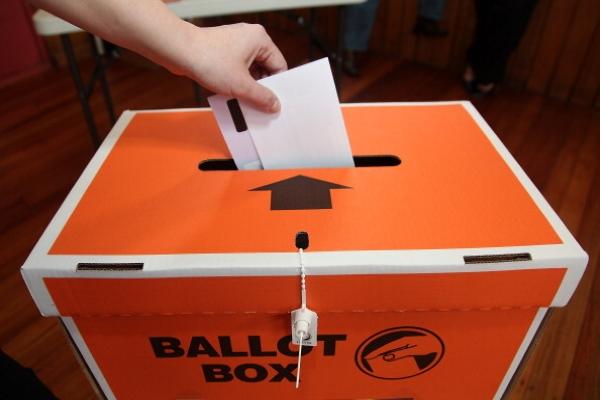Published on the 20/09/2017 | Written by Newsdesk

Two fifths of SMEs report negative impact on trade – but business is good for some…
There’s a bit of an election on and with it comes uncertainty for some of New Zealand’s small businesses. That’s emerged in a survey from accounting software provider MYOB, which said in a statement that many local businesses will be wishing it was over. They won’t have long to wait; barring Winston Peters holding the balance of power and dragging out negotiations as he is wont to do, it should be all over by the end of the weekend.
MYOB’s Business Monitor Snapshot surveyed 400 small and medium enterprises to reveal that 39 percent are adversely affected by election uncertainty.
It’s not all bad news, as one might imagine: 21 percent ‘report at least some positive effect from the closely contested election’.
In a statement, MYOB GM Carolyn Luey said political uncertainty is never good for business, as investment decisions are postponed, hiring staff is put on hold and long-term decisions are delayed because owners are unsure what policies will be in place in the future. “The close nature of the race is taking its toll. Businesses will be hoping for clarity from the election result next weekend,” she noted.
“It’s hard to say exactly what effect the election will have on the overall economy, but many local businesses are already counting the cost.”
If it is any consolation, if there is a change of government which may or may not herald a raft of new taxes (but only those which have already been announced) and a return to collective bargaining is ushered in (but with the nice sounding name of Fair Pay Agreements), among other regulations for businesses to price into their final products, it is this. Law changes do take some time to wend their wafty way through parliament. Small consolation indeed; further amelioration, perhaps, in the next election but three years hence.
Businesses, continued MYOB, most affected by the election are those in the primary sectors, with 50 percent reporting a negative impact, no doubt influenced by criticism of their environmental impacts and the possibility of new taxes.
The property and professional sector was close behind with 47 percent reporting a negative impact, likely coming from the possible introduction of capital gains and land taxes.
On the upside, however, more businesses in the manufacturing and wholesale industry see the election race as positive (38 percent) than negative (32 percent), possibly due to opportunities they see in a lower New Zealand dollar and proposals for more workforce training programmes.
“Ultimately, the cost of democracy is one that business owners are happy to carry – but they would prefer to do so in the knowledge that all of New Zealand’s political parties are prepared to listen to and address the issues facing the SME community,” said Luey.
The survey found 83 percent of SMEs said issues facing their business or industry have not received enough attention this election campaign, while just 10 percent were happy with the level of engagement.
That’s a fail on the part of all the political parties – after all, as Luey pointed out: “New Zealand has approximately 500,000 small to medium enterprises, making up 97 percent of all businesses and 29 percent of our GDP. They are a very important sector and it is important political parties focus on helping them to achieve success.”
MYOB said the survey was conducted from 4 to 8 September and has a margin of error of +/- 4.9 percent.



























